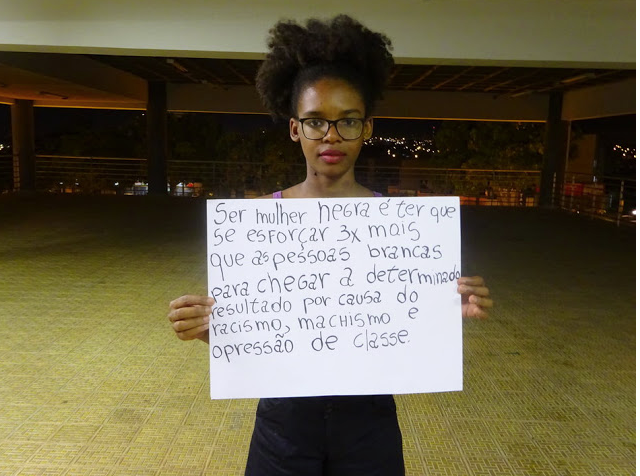The African Descendant population of Brazil (approx 100 million) is greater than the combined population of Ghana and Kenya. But, you would never know it when you look at the Rio Olympics and its coverage of “typical” Rio and Brazil.
For the past 50 years, there’s been a powerful social, cultural and political movement of Black Brazilians to get some form of affirmative action, reparations, educational equity and be counted accurately in the census. Now, inspired by the US’s BlackLivesMatter Movement, young Black Brazilians are pushing the government and society on the whole to recognize the centrality of AfroBrazilians to the development of Brazil’s democracy.
The legacy of Portuguese slavery and colonialism has resulted in a very complex and, ofttimes, bizarre form of “racial” categorization in order to try to keep the “white” population the largest in the nation. Hence, at one point in Brazil’s history, they actually had 127 racial categories based on skin color, height, hair texture, nose size, lip size, body build, eye color…. Today, it’s down to about a dozen “racial” categories… with the results of the census indicating that 92 million (48%) Brazilians were white, 83 million (44%) were brown, 13 million (7%) were black, 1.1 million (0.50%) were yellow and 536,000 (0.25%) were indigenous. But, if we look at Brazilians thru the US “Race Lens”, we find that that “brown” or pardo category looks like folk we call Black here in the US!
Racism runs deep in Brazil. And, with the use of the social media, the Black Brazilian antiracist fightback is gaining traction inside of Brazil. Below are some statement that Brazilian activist youth have been spreading around to help combat and eradicate Brazilian racism.
This Photo Series Shows What I Means To Be A Black Woman In Brazil
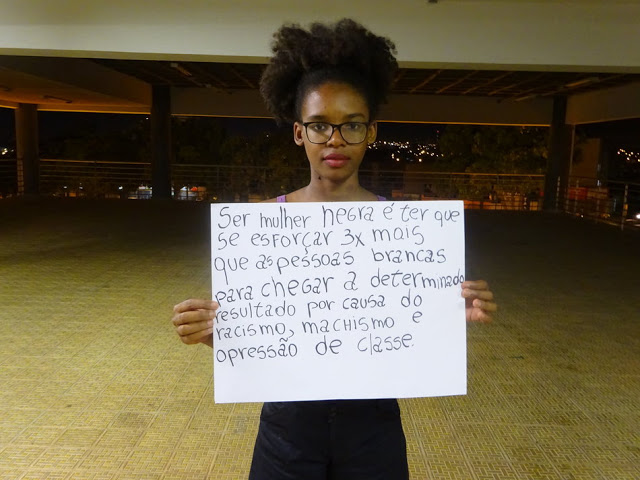 |
| “Being a black woman is to strive three times harder than white people to achieve the same result. That’s because of racism, sexism, and class oppression.” |
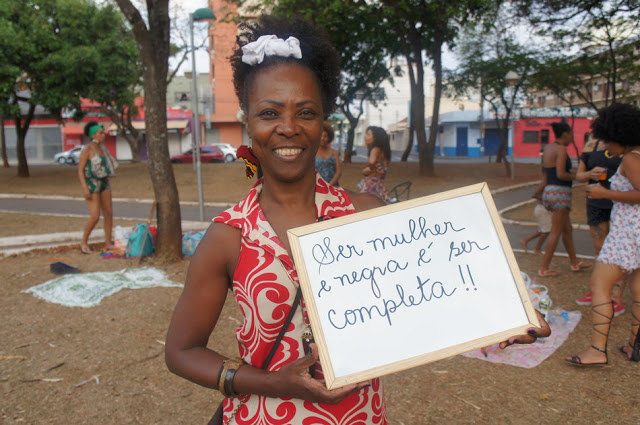 |
| “Being a black woman is to be complete!” |
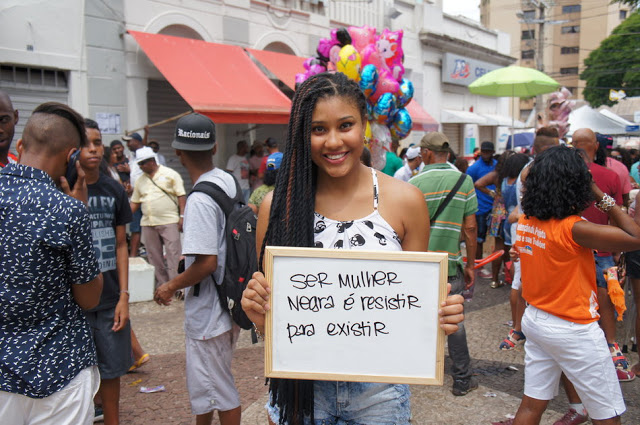 |
| “Being a black woman means to resist, in order to exist.” |
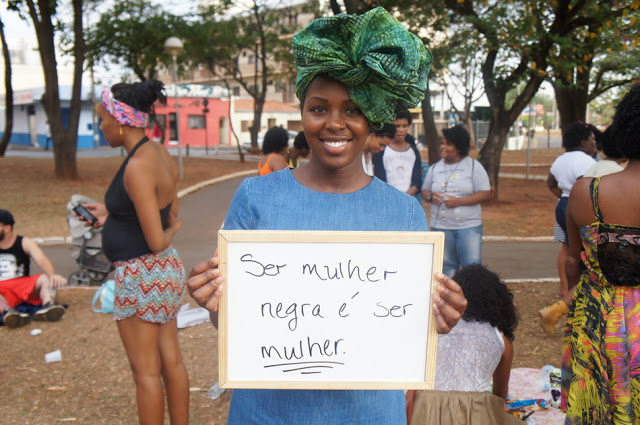 |
| “Being a black woman is being a woman.” |
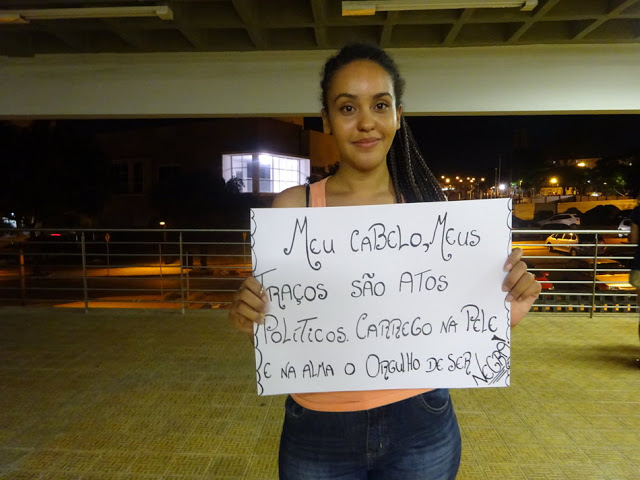 |
| “My hair and my features are political acts. I carry in my skin and in my soul the pride of being black.” |
 |
| “Being a black woman is to be proud of what is natural!” |
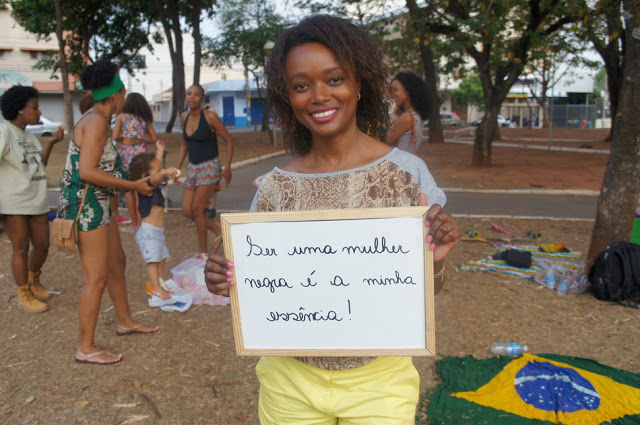 |
| “Being a black woman is my essence!” |
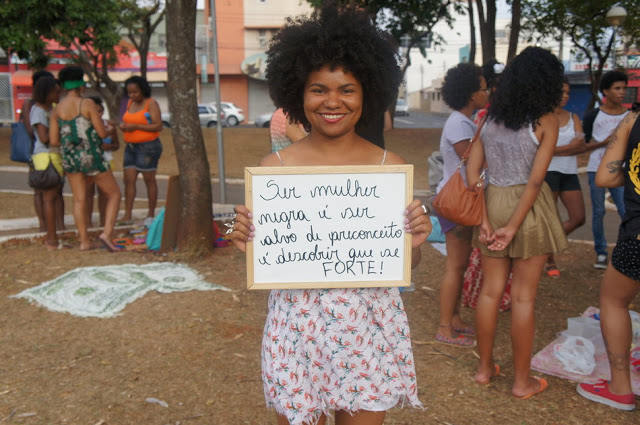 |
| “Being a black woman is to be targeted with prejudice and to find out you are strong.” |
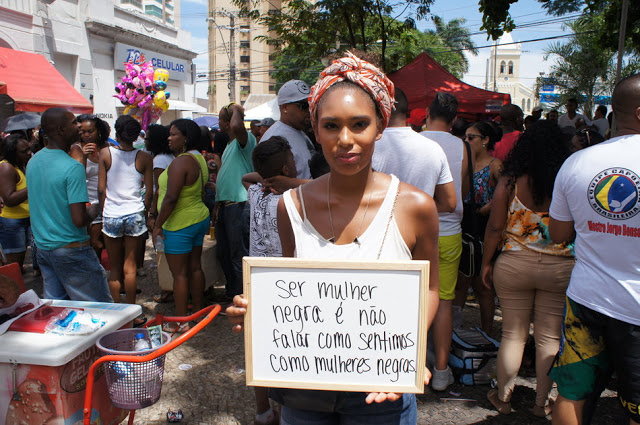 |
| “Being a black woman means not talking about how we feel as black women.” |
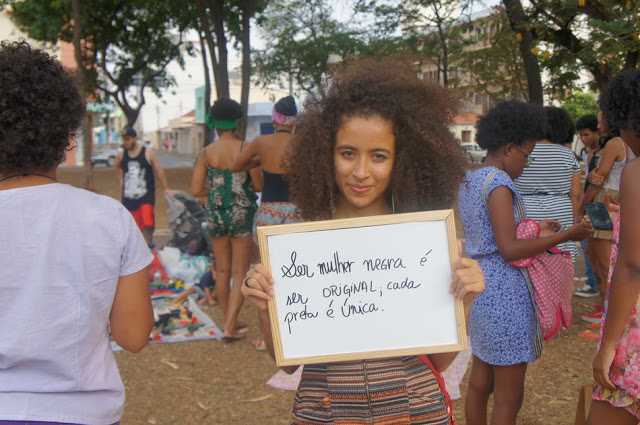 |
| “Being a black woman is being original, each black woman is unique.” |
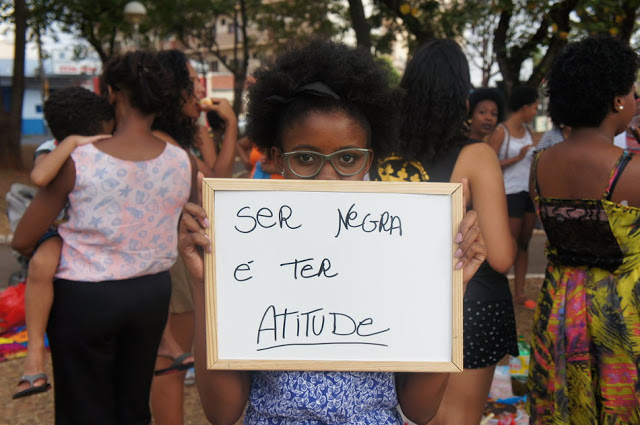 |
| “Being black is to have attitude.” |
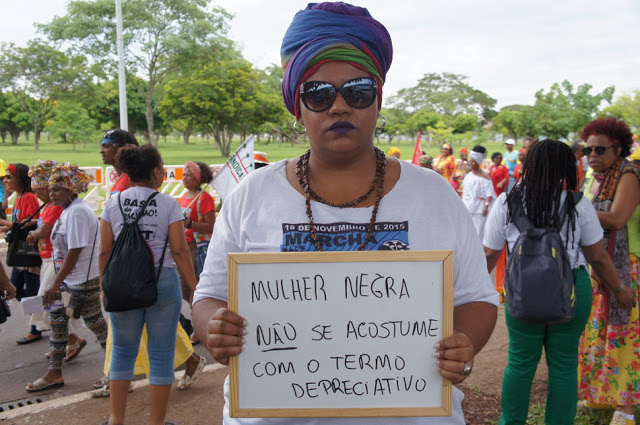 |
| “Black women: don’t get used to offensive words.” |
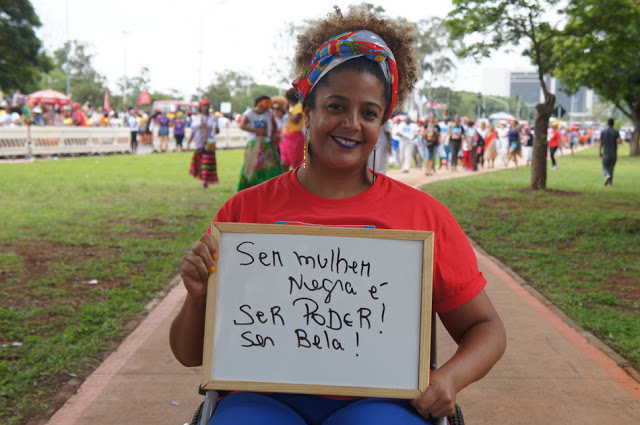 |
| “Being a black woman is to be powerful and beautiful.” |
 |
| “Being a black woman is to overcome standards.” |
 |
| “Being a black woman is to feel the sun every day.” |
 |
| “Being a black woman is to resist.” |
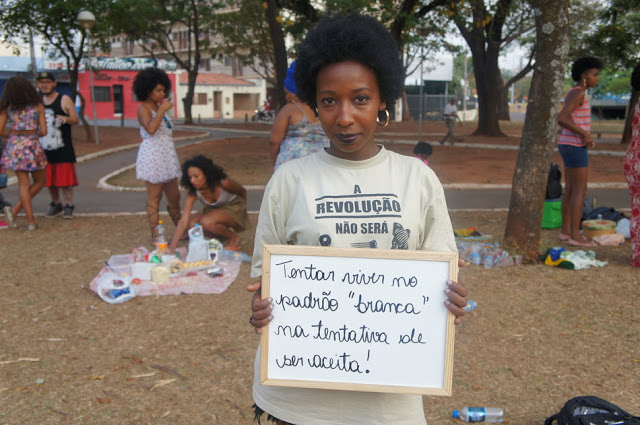 |
| “Trying to live by ‘white’ standards in order to be accepted!” |
 |
| “Being a black woman is love, resistance, strength. A fight against the system.” |
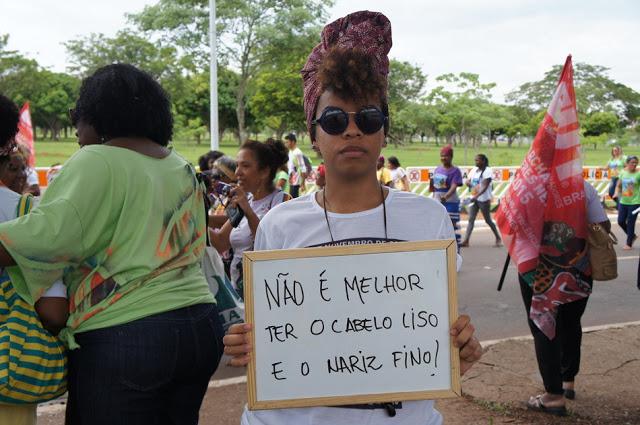 |
| “It is not better to have straight hair and a slim nose.” |
 |
| “My own existence is a challenge.” |
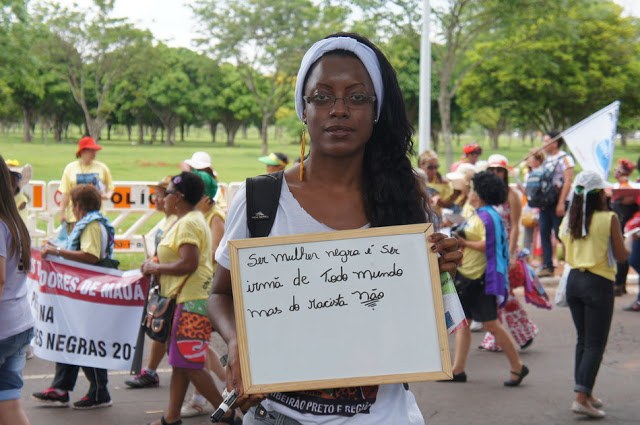 |
| “Being a black woman is to be the sister of everyone, except the racist.” |
 |
| “I exist to resist!” |
























